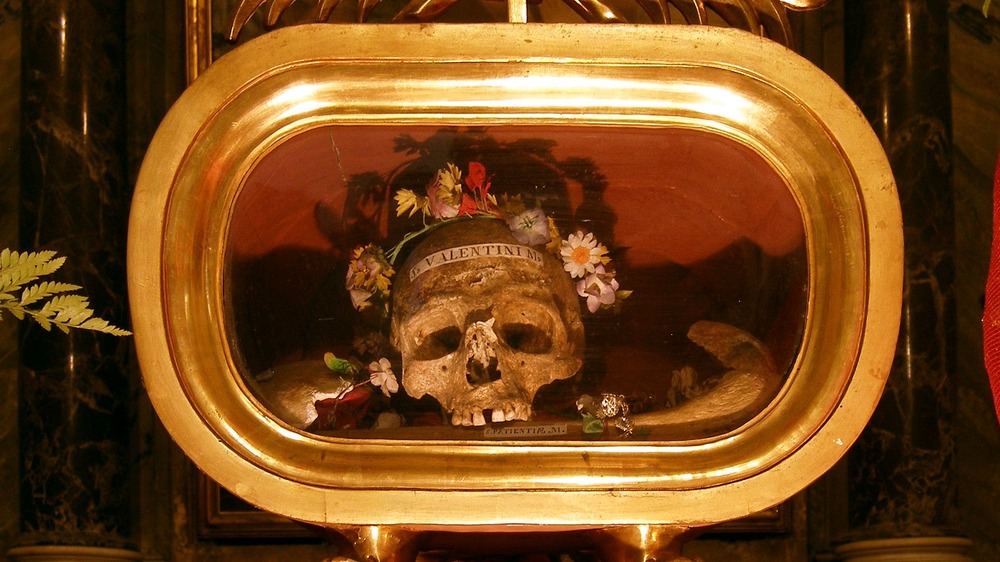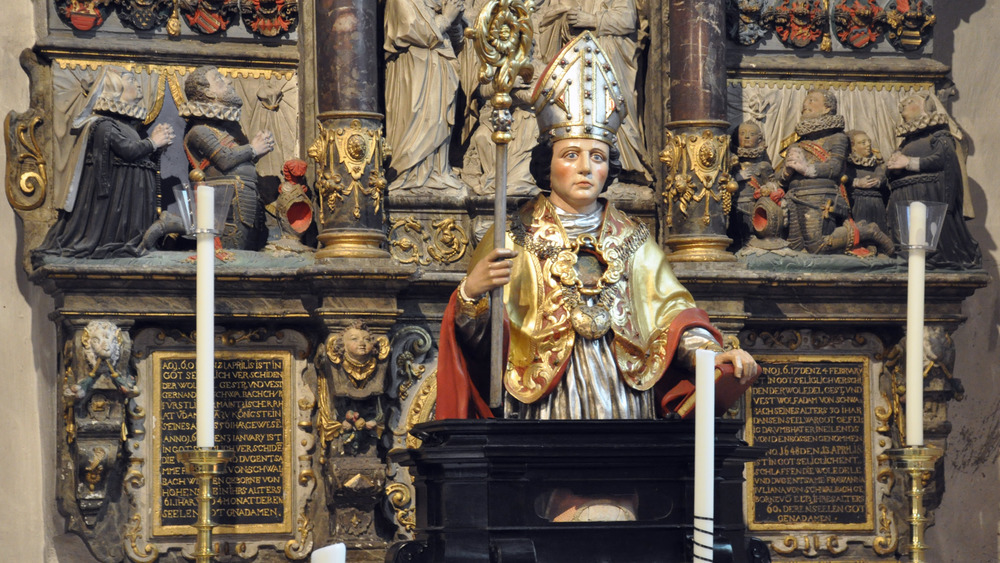Who Was St. Valentine?
In much of the world, the day most associated with romantic love is February 14, the Feast of Saint Valentine or, as it is more commonly known, Valentine's Day. We celebrate it by wearing red, eating chalky hearts with pseudo-romantic messages on them, and begrudgingly handing out cheap pieces of card stock with Transformers on them to every kid in the class. But how did we get here? Who is the Saint Valentine that we remember (kind of) each year by putting unnecessary pressure on ourselves to be romantic?
Well, no one really knows. As the Catholic Encyclopedia explains, the name Saint Valentine could refer to any one of three different martyrs who died on February 14 about whom very little else is known. The first Saint Valentine was a priest in Rome, and the second was a bishop elsewhere in Italy, and these two allegedly different people both lived in the latter half of the third century and were both buried on the Flaminian Way, a Roman road. There was a church dedicated to one or both of them near a gate on that road. The third Saint Valentine was martyred in Africa together with some companions, but that's it. That's all we know about any of them. Per Trinity College, even Pope Gelasius, the one who instituted the Feast of Saint Valentine as a holiday, said that although Valentine was worthy of reverence, his "acts are known only to God." So, who was Saint Valentine? *half-hearted shrug emoji*
The dubious legends of Saint Valentine
Lack of historical evidence about a Christian saint has never stopped popular tradition before, so why should it stop legends building up around Saint Valentine? Because Saint Valentine's Day became associated with romantic love, love became the theme of the various legends that built up around the mysterious saint(s). According to History, one of the best-known stories about the life of Saint Valentine is that he lived during the reign of the Roman Emperor Claudius II, who decreed that young men were not legally allowed to get married, as single men made better soldiers. Valentine carried out marriages in secret, and when he was discovered, he was executed by the emperor.
Another popular legend that hopefully doesn't pass the smell test for you is one that relates that while Valentine was imprisoned and awaiting execution, his jailer, a man named Asterius, tested the strength of Valentine's God by asking him to heal his blind daughter. The saint healed the girl and converted his own jailer to Christianity. As he headed out to be beheaded by the emperor for performing secret marriages, he recorded his last words in a note to Asterius' daughter, which he signed "from your Valentine," which is the alleged origin of sending love notes on February 14 signed that way. Stories like these are meant to provide after-the-fact justification for why Valentine's Day is a lovey-dovey day. But the association of the day with romance has nothing to do with the saint himself.
Why Valentine's Day is a romantic holiday
As the Catholic Encyclopedia explains, the long-standing connection of romantic love and February 14 has little to nothing to do with the nonexistent details of the life of any of the Saints Valentine. Again, the details that we know are: he was alive, his head got cut off, and now his head (possibly) is sitting in a glass case with a cool looking wreath of flowers around it and a name tag on his forehead in a church in Rome. Rather, the love connection is more of a coincidence. During the Middle Ages, the conventional belief in England and France was that birds picked their mates on February 14, i.e., halfway through the second month of the year. There's kind of a motif around the number 2 there, see. Geoffrey Chaucer, the famous author of The Canterbury Tales, wrote in his poem Parliament of Foules, "For this was sent on Seynt Valentyne's day/Whan every foul cometh ther to choose his mate."
It was because of this belief that the day became associated with love, and it's basically a coincidence that it happened to be the feast day of a particular saint. The custom became that February 14 was the appropriate day to send love letters or other signs of your affection to the object of your romantic interest. So, really, you have to buy flowers on February 14 not because of any Christian saint, but because that's the day Geoffrey Chaucer thought birds got busy.


